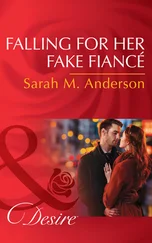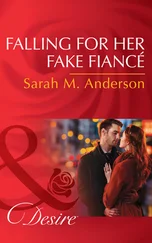“Dear me,” said Selena, turning her wineglass between her fingers, “it almost sounds as if she thought—” “She can’t really be suggesting—” said Ragwort.
“She thinks there’s something fishy about it,” said Cantrip, his eyes brightening with innocent enthusiasm at the thought of homicide. “The way she sees it, when you’re rich enough to have a Mercedes, you leave the dirty work to someone else. So if you suddenly start offering to help with the washing up, it’s a definite sign of fishiness. Bet you anything she’s right.”
“On the other hand,” said Selena, “isn’t it just possible that it was simply an act of politeness?”
“Though perhaps,” said Ragwort, “a rather officious one. One doesn’t normally offer to do the washing up if one’s simply been having drinks with someone — one would think they might feel embarrassed if they hadn’t tidied the kitchen. It’s different, of course, if they’re family, or if one’s staying the night.”
“Right,” said Cantrip. “So he didn’t do it to be polite, he did it because Isabella’s had cyanide in the bottom.”
“Surely not cyanide?” said Julia. “According to all that I have read on the subject — which I may say includes the complete works of the late Dame Agatha Christie and other almost equally distinguished authorities — the effect of cyanide is virtually instantaneous. When Maurice took Daphne home, the black Mercedes had already gone and Isabella was still well enough to shout out to Daphne that she didn’t want her for anything.”
“Oh, all right then,” said Cantrip, “arsenic or something — there are lots of poisons that take an hour or two to work. So at some stage in his chat with Isabella he slips whatever it is into her glass and sticks around until she’s finished drinking it. Then he does his New Man bit and washes up the glasses before he goes. He drives off, and Daphne and the Reverend get back ten minutes later, before whatever it is has started to work.”
“I defer,” said Selena, “to those who have read more widely than I have on the subject, but isn’t it considered usual for murderers to have some sort of motive?”
“Certainly,” said Julia. “But Isabella sounds like the sort of woman practically everyone wants to murder.”
“But not the man in the black Mercedes. He was a regular client and presumably valued her advice. Why should a satisfied client want to murder his fortuneteller?”
“Lots of reasons,” said Cantrip. “I expect she told him it was a good day for travel and romance and he’d got stuck in traffic on the M21 and had a blazing row with his bird. So he got miffed and poisoned her. Which is good, because now you can do your ace detective bit, Hilary, and unmask the villain and put it all in a book. ‘The Case of the Vulture, the Vicar and the Virgin’ is what you want to call it, and you’d better make this Daphne bird a gorgeous-looking blonde. Then you’ll make pots of money out of it and you can take us out to dinner.”
“My dear Cantrip,” I said, “alluring though these prospects are, I fear I must disappoint you. Julia’s aunt Regina is without question a shrewd and observant woman, but I think that in the present case she is being unduly fanciful. There are many possible explanations, all more commonplace and therefore more probable than murder, for the absence of unwashed glasses. I see no reason to doubt that Isabella died, as most people do, from perfectly natural causes.”
As I have already admitted to my readers, during my investigation of these events I was on several occasions entirely mistaken.
5

DEL COMINO — Isabella, suddenly on 22nd June at her home in Sussex. A wonderful and caring person whose great gifts as a healer and teacher were devoted to helping others. Her wisdom and guidance will be missed above all by her niece, Daphne, who will humbly but proudly strive to continue her work. Funeral 12 noon on Friday, 25th June, at St. Ethel’s Church, Parsons Haver.
[Deaths column of the Times ]
IT WAS A FRIDAYsuitable to funerals, the sky sombre with the threat of unseasonable rain and an unpleasant clamminess in the air. Rather earlier than usual — a document crucial to my researches had been capriciously removed to Kew — I left the Public Record Office and made my way to the coffeehouse at the top of Chancery Lane, expecting it to be some time before I was joined there by any of my friends.
Soon afterwards, however, Selena appeared and began to talk about men, expressing herself on that subject with unusual bitterness. Thinking that this must signify some unhappy rift in her relationship with my young friend and colleague Sebastian Verity, the customary companion of her idler moments, I enquired with some concern what he had done to displease her.
“When I speak of men,” said Selena, “I do not mean Sebastian. Sebastian is not a man in the sense in which I am at present using that term — that is to say, he is not a man who undertakes any kind of building work. Three weeks ago I arranged to have a site meeting at nine-thirty this morning with the carpenter, the plumber and the electrician, to work out exactly what was going to be done when and how they were all going to fit in together. Since when, rather than cancel it, I’ve turned down a very nice little brief in the Companies Court. And now the plumber’s rung up to say that his van’s broken down and he can’t be here before midday. And the electrician’s rung up to say that he has an emergency in High Barnet and can’t be here until the afternoon. And the carpenter’s rung up to say that he has a family bereavement and can’t be here at all. Hilary, do you think men in the building trade always behave like this?”
“No, no,” I said soothingly. “I’m sure it’s most unusual.” What was unusual, from all I had ever heard of such matters, was not their failure to arrive but their telephoning to give notice of it; I did not think it constructive to mention this.
“Still, I suppose there’s a bright side. Sir Robert Renfrew’s suddenly decided he wants another conference — he’s coming round at eleven-thirty At least I don’t have to worry about him being showered with carpenters.” She gave a small sigh, as if nonetheless expecting the conference to present her with further troubles.
I asked if Sir Robert was still expecting her to advise him on the choice of his successor.
“I’m afraid so. His latest idea is that if I meet the two directors concerned I’ll somehow be able to tell which of them is the insider dealer. He’s bringing them along so that I can have a look at them. They don’t know that’s why, of course — ostensibly I’m advising on the documents for the next takeover.”
“It’s gratifying, at least, that he has such faith in your judgment.”
“Well, it would be if it weren’t utterly absurd — I’m beginning to feel like the girl in the fairy story who was expected to spin straw into gold.”
Julia arrived: she had received a further letter from her aunt.

24 High Street
Parsons Haver
West Sussex
Thursday, 24th June
Dear Julia,
I had a rather strange conversation with Ricky yesterday, and he told me why he advised us to buy those shares you were interested in — this is the first chance I’ve had to sit down and write to you about it. I seem to have spent as much time on Isabella’s funeral as if she’d been my dearest friend — which, as you know, she wasn’t.
Maurice is in rather the same position — he’s been spending as much time on it as if she’d been his most devout parishioner, which she also wasn’t. Still, it does make things a bit easier that he’s going to conduct the service, and that it’s going to be at St. Ethel’s. I’d have expected her to want Stonehenge, with the Archdruid presiding, but Daphne seems quite sure she’d have wanted Maurice to do it—”She always said you were her adversary, Father Dulcimer, but an honourable adversary and a true priest.” Oh dear, poor Maurice.
Читать дальше














